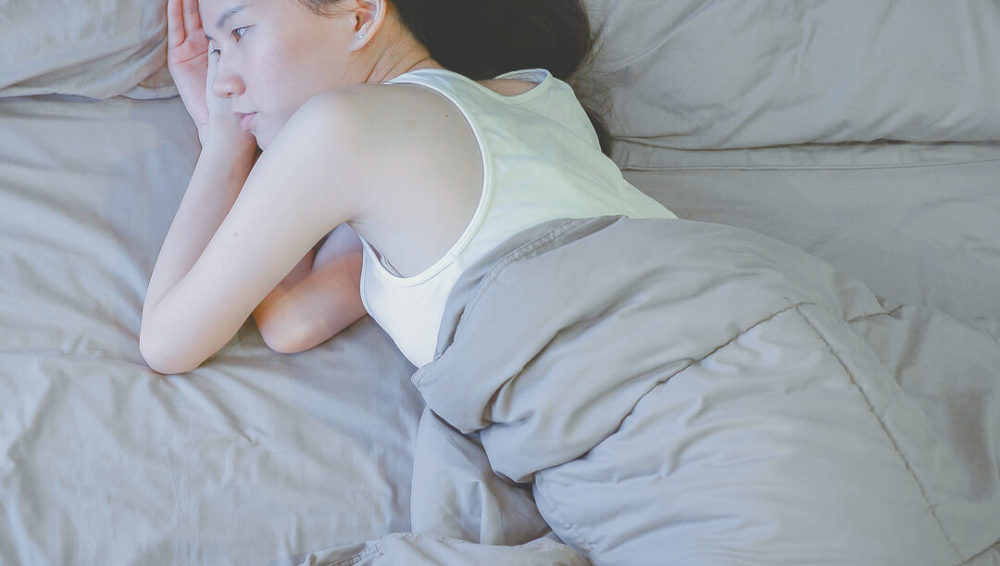What to do about baby blues, depression and postpartum psychosis
Insights

You might not be expecting it, but mild depression, anxiety, and mood swings are common in new mothers. Some moms even experience psychosis in the weeks after giving birth.
Here are three common postpartum emotional experiences and what to do if you think you go through them.
Baby blues
Over half of the new mothers will have ‘Baby Blues’. It normally starts immediately after birth or up to 3 to 4 days later. It manifests as mood swings. The new mother can easily burst into tears. She may feel fatigued, anxious, irritable, low, and sleep-deprived at times. And she may often overreact to things. It usually peaks around one week and decreases by the end of the second week after birth.
You might not necessarily need treatment for baby blues. They are perfectly normal, but if your symptoms don’t go away after a few weeks or get worse, you may be suffering from postpartum depression
Postpartum depression
Postpartum depression is a form of major depression that affects 10% of mothers within four weeks after childbirth. The symptoms are similar to those of depression at other times. These include extreme sadness, feeling of worthlessness, guilt, isolation, low energy, anxiety, crying episodes, insomnia, irritability, and changes in eating patterns.
The condition is similar to baby blues, but the symptoms are more severe and longer-lasting and may include suicidal thoughts or an inability to care for your newborn. The good news is postpartum depression can be treated with medication and counseling.
What causes postpartum depression?
There are hormonal changes during pregnancy and a rapid drop in hormones after delivery. The actual link between this drop and depression is still not clear. But what is known is that the levels of estrogen and progesterone, the female reproductive hormones, increase tenfold during pregnancy. Then, they drop sharply within three days after a woman gives birth. Physical pain and changes can also be part of the cause, as well as the stress and exhaustion from taking care of a newborn
What are the risk factors?
A previous history of postpartum depression is the most significant risk factor. It can increase the chances of another episode by 30-50%. Also, a history of non-pregnancy-related depression or a family history of depression is a risk factor. Other risk factors are social stressors, such as financial problems and a lack of emotional support.
Since postpartum depression may be triggered by the hormonal shifts that occur after childbirth, few studies have shown that a history of moderate to severe premenstrual syndrome or premenstrual dysphoric disorder highly increases the likelihood of postpartum depression.
Postpartum psychosis
It is a severe episode of mental illness that begins suddenly in the days or weeks after having a baby. Symptoms can change rapidly. They can include high mood (mania), depression, confusion, hallucinations, delusions, thoughts of self-harm, and harming the baby.
Postpartum psychosis is a psychiatric emergency. Fortunately, It’s not as common as baby blues or postpartum depression. Postpartum psychosis is seen in about 0.1% of mothers. It arises suddenly and usually starts within two weeks after delivery — even as early as 48 hours.
What is the cause of postpartum psychosis?
Postpartum psychosis doesn’t just arise as a result of anything you have thought or done, such as relationship problems, stress, or the baby being unwanted. There are likely to be many factors. We know that genetic factors are important. Changes in hormone levels and disrupted sleep patterns may also be involved.
What are the risk factors?
If you have ever had a diagnosis of bipolar disorder, schizophrenia, schizoaffective disorder, or other psychotic illness, your risk of postpartum psychosis is high.
If you also have a mother or sister who has had postpartum psychosis, your risk may be even higher. The same is true if you have had postpartum psychosis before. If you are in one of these high-risk groups your chance of having postpartum psychosis is between 25% to 50%. You should discuss your individual risk with a psychiatrist.
Verified:
Dr. Wanwadee Sapmee Panyakat (OB-GYN), license no. 41208 (5 January 2019)



